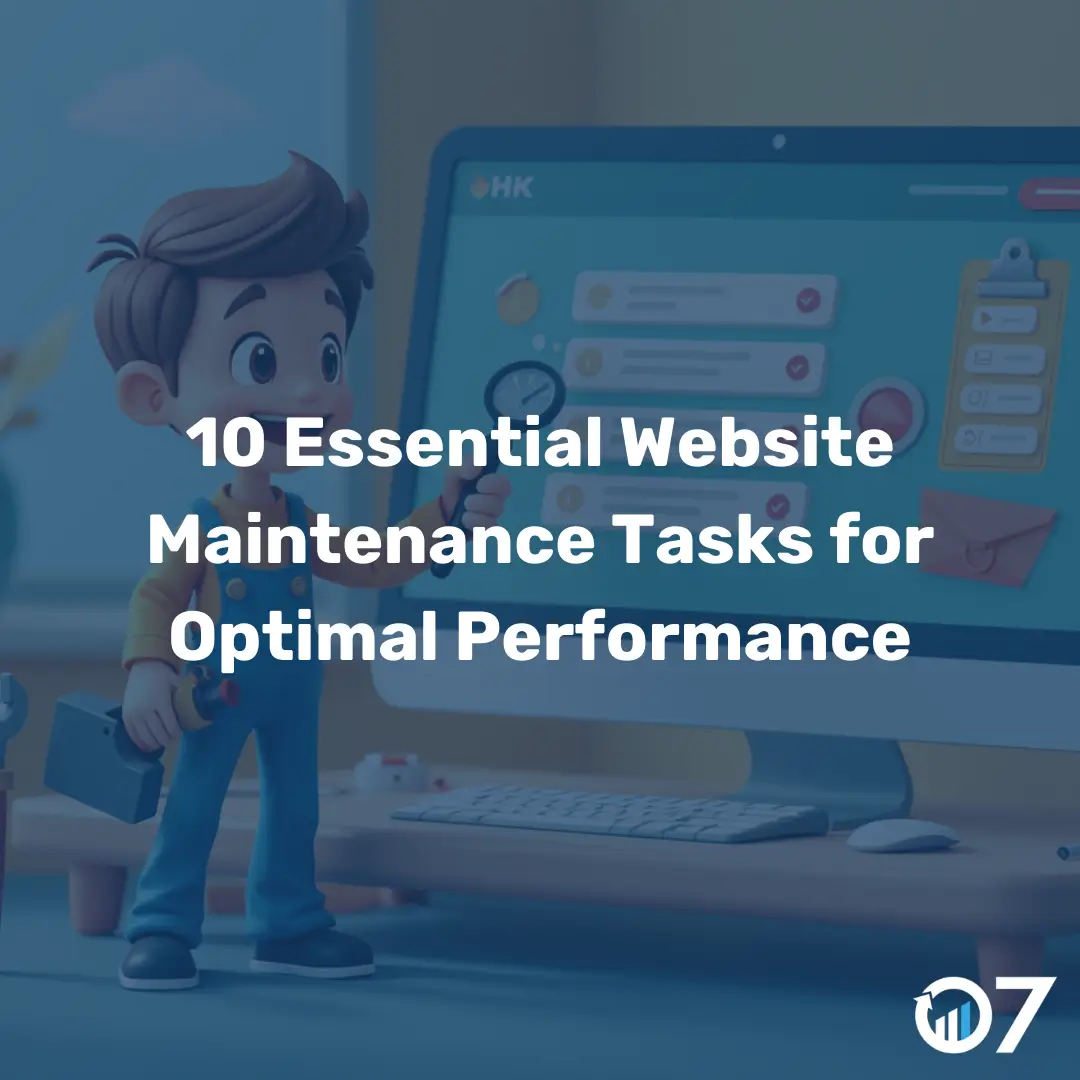Essential Website Maintenance Tasks for Optimal Performance
Website maintenance tasks are crucial for ensuring your site runs smoothly and efficiently. By keeping up with regular maintenance, you can improve user experience, boost SEO rankings, and prevent security issues. Read on to discover the essential tasks that will keep your website in top shape.
Why Website Maintenance Tasks Matters
Running a website isn’t just about creating great content and attracting visitors. It’s also about ensuring that your site remains functional, secure, and up-to-date. Neglecting website maintenance can lead to slow loading times, broken links, and even security breaches. By regularly performing these tasks, you’ll provide a better experience for your visitors and maintain a professional online presence.
1. Regularly Update Software and Plugins
One of the most critical website maintenance tasks is keeping your software and plugins up-to-date. Outdated software can make your site vulnerable to security threats and cause compatibility issues. Regular updates ensure that you have the latest features and security patches.
2. Backup Your Website
Regular backups are essential for protecting your data. In case of a server crash, hacking, or accidental deletion, having a recent backup can save you a lot of trouble. Aim to back up your site at least once a week and store the backups in a secure location.
3. Optimise Website Speed
Website speed is crucial for user experience and SEO. Slow-loading pages can frustrate visitors and lead to higher bounce rates. Use tools like Google PageSpeed Insights to identify areas for improvement and optimise your site’s performance.
4. Check for Broken Links
Broken links can harm your site’s credibility and user experience. Use tools like Screaming Frog or Broken Link Checker to find and fix any broken links on your site. Regularly checking for broken links ensures that your visitors can navigate your site without issues.
5. Test Website Forms
Forms are an essential part of many websites, whether for contact, subscriptions, or e-commerce. Regularly test your forms to ensure they are working correctly and that you are receiving submissions. A malfunctioning form can lead to missed opportunities and frustrated users.
6. Review Analytics Data
Regularly reviewing your website analytics can provide valuable insights into user behaviour and site performance. Use tools like Google Analytics to track metrics such as page views, bounce rates, and conversion rates. This data can help you make informed decisions about content and design changes.
7. Update Content
Keeping your content fresh and relevant is crucial for maintaining user engagement and SEO rankings. Regularly update your blog posts, product descriptions, and other content to reflect the latest information and trends. This not only keeps your site interesting but also helps improve your search engine rankings.
8. Ensure Mobile Compatibility
With more people accessing websites on mobile devices, ensuring that your site is mobile-friendly is essential. Use tools like Google’s Mobile-Friendly Test to check your site’s compatibility and make any necessary adjustments to improve the mobile user experience.
9. Monitor Security
Website security should be a top priority. Regularly monitor your site for security vulnerabilities and take steps to protect against threats. Use security plugins, perform regular security scans, and keep your software and plugins up-to-date to minimize risks.
10. Check Website Functionality
Regularly test your website’s functionality to ensure everything is working as it should. This includes checking navigation, links, forms, and any interactive elements. A well-functioning website provides a better user experience and helps maintain your professional image.
Bonus – Review SEO Performance
SEO is an ongoing process, and regular maintenance is crucial for staying ahead of the competition. Use tools like Moz or Ahrefs to monitor your SEO performance and identify areas for improvement. Regularly updating your keywords, meta descriptions, and other SEO elements can help boost your rankings and drive more traffic to your site.
Website Maintenance Tasks Conclusion
Keeping up with website maintenance tasks is essential for ensuring your site runs smoothly and efficiently. By regularly performing these tasks, you can improve user experience, boost SEO rankings, and prevent security issues. For more tips and insights on website maintenance, visit our blog or contact us via email at info@07hm.co.uk or telephone 01702 410663.





